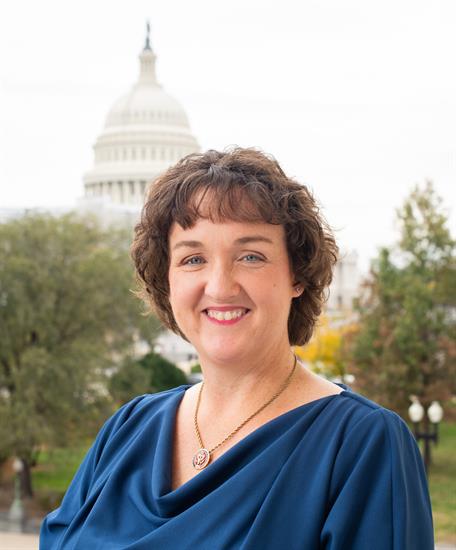
Last week, The House Oversight Committee held a hearing on the rise in violence aimed at LGBTQ+ members. US House Rep Katie Porter in the exchange below is speaking to the second panel made up of Human Rights Campaign's Kelley Robinson,
Pulse Nightclub shooting survivor Brandon Wolf, National Center for Transgender Equality's Oliva Hunt, Inside Out Youth Services' Jessie
Pocock and The Williams Institute's Ilan Meyer.
US House Rep Katie Porter: I wanted to start with Ms.
Robinson, if I could. Your organization recently released a report
analyzing the five hundred most viewed, most influential Tweets that
identified LGBTQ people as so called "groomers." The groomer narrative
is an age old lie to position LGBTQ+ people as a threat to kids and what
it does is to deny them access to public spaces and it stokes fear and
it even stokes violence. Ms. Robinson, according to its own hateful
content policy does Twitter allow posts calling LGBTQ people "groomers"?
Kelley
Robinson: No, I mean Twitter along with FACEBOOK and many others have
community guidelines. It's about holding users accountable and
acknowledging that when we use phrases and words like "groomers" and
"pedophiles" to describe people, individuals in our community that are
mothers, that are fathers, that are teachers, that are doctors, it is
dangerous. And it's got one purpose -- it's to dehumanize us and make
us feel like we're not a part of this American society and it has real
life consequences. So we are calling on social media companies to
uphold their community standards. And we're also calling on any
American that's seeing this play out to hold ourselves and our community
members accountable. We wouldn't accept this in our families, we
wouldn't accept this in our schools. There's no reason to accept it
online.
US
House Rep Katie Porter: So I think you're absolutely right and it's not
just this allegation of groomer and pedophile, it's alleging that a
person is criminal somehow and engaged in criminal acts merely because
of their identity, their sexual orientation, their gender identity. So
this is clearly prohibited under Twitter's content yet you found
hundreds of these posts on the platform. Your team filed complaints
about these posts, correct?
Kelley Robinson: Yes.
US House Rep Katie Porter: And how often did Twitter act to take down these posts which violated its own content policy?
Kelley Robinson: Very rarely.
US
House Rep Katie Porter: So from our calculation, it looks like about
99% of your complaints. They basically acted on one or two of the 100+
complaints you filed. Instead of taking them down, Twitter elevated
them. Allowing them to reach an approximate 72 million users. This is
not just about what happens online. What happens online translates into
real harm in people's lives. Ms. Popcock, you provide services to a
community that experienced the devastating LGBTQ attack. Can you
provide some examples of the link between speech online and the attacks
against providers like you.
Jesse
Pocock: We know really, I mean, online threats, in addition to creating
an atmosphere of bullying for young people, it also creates an
atmosphere of delegitimizing our real professional trained work at
INSIDE OUT YOUTH services. And it is just so critically important that
we can continue doing the work that we do. But I want to tell just one
quick story because it's beautiful. We have an online community center
and it is moderated by peer advisors and when asked how many issues of
like fighting or contention do you deal with on the disport server our
young people tell us "Well, it doesn't happen very often." So I'm here
to tell you that our young people have figured out how to moderate
platforms in positive, productive ways? Twitter, FACEBOOK, everybody
else can figure it out too.
US
House Rep Katie Porter: Absolutely. Ms. Robinson, your report notes
that these radicalizing posts, these 'groomer' posts, these other posts
that attack LGBTQ communities are related to acts in the real world --
what happens online is often reflective of what happens in the real
world. After Governor DeSantis of Florida passed his so-called "Don't
Say Gay" bill, what trends did you observe online with regard to
'grooming' related discourse.
Kelley
Robinson: Unfortunately, we saw a 400% increase on Twitter of this sort
of hateful language. Particularly calling our community members
groomers and pedophiles. And we know that rather or not the bills move
into effect, the lasting impact of that online bullying of defining our
communities in that way, it sticks -- especially with our kids.
US
House Rep Katie Porter: My time has expired but I just want to say I'm
proud today, I'm proud to stand with the gay community and I'm proud
that you're all here as part of our country and giving us testimony. I
yield back, Madam Chair.
